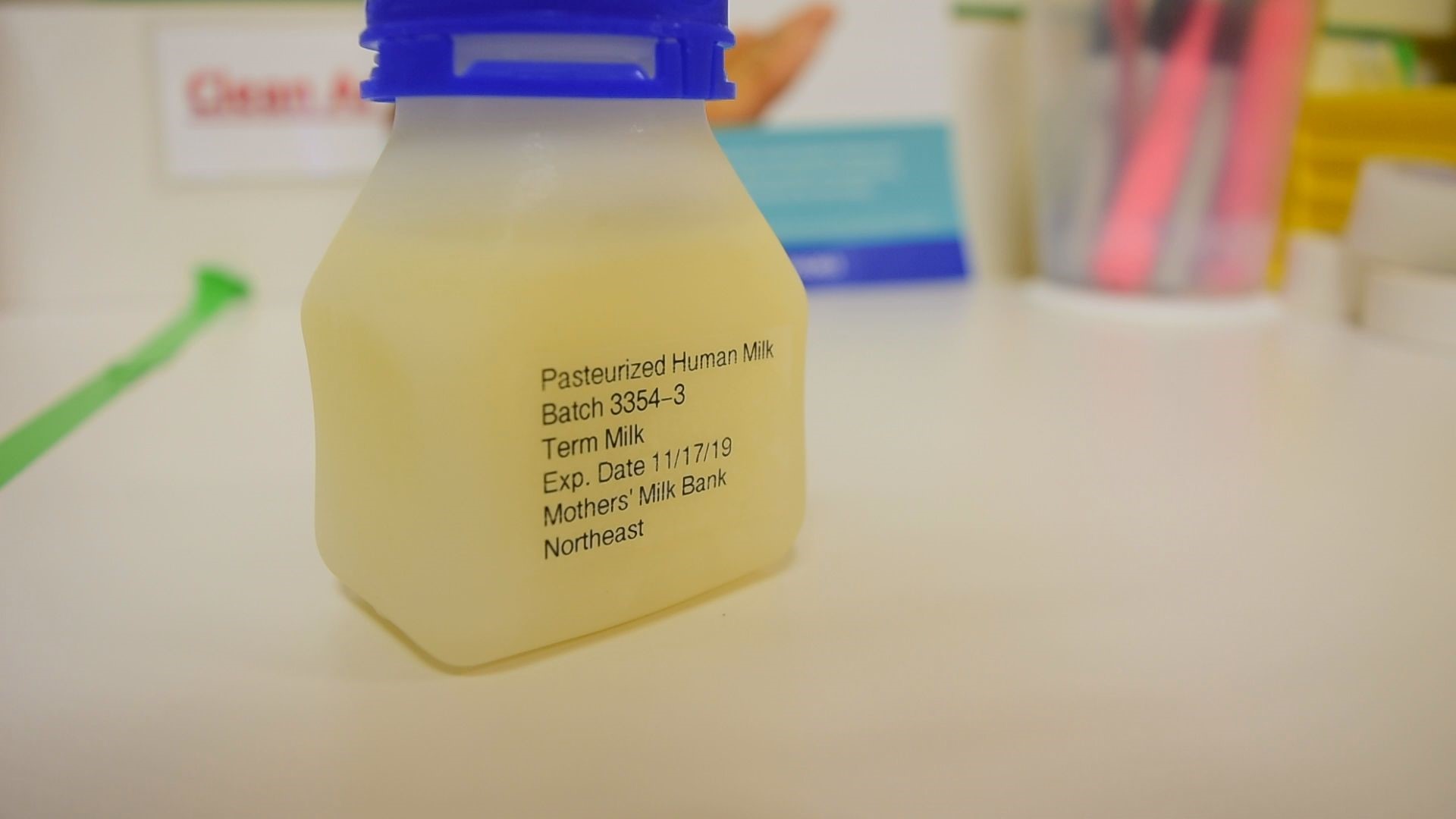PORTLAND, Maine — Science and medical communities are in agreement that the best thing for the health of newborn babies is mother's breast milk. It has the nutrients and antibodies babies need early in life.
But what happens when a new mom can't produce the milk her baby needs?
At Maine Medical Center and hospitals across the state, they've known for years that the best thing for babies in the NICU is mother's milk, even if it isn't from their own mom.
Maine Med is the first hospital in the state to now offer donor breast milk on the regular maternity ward.

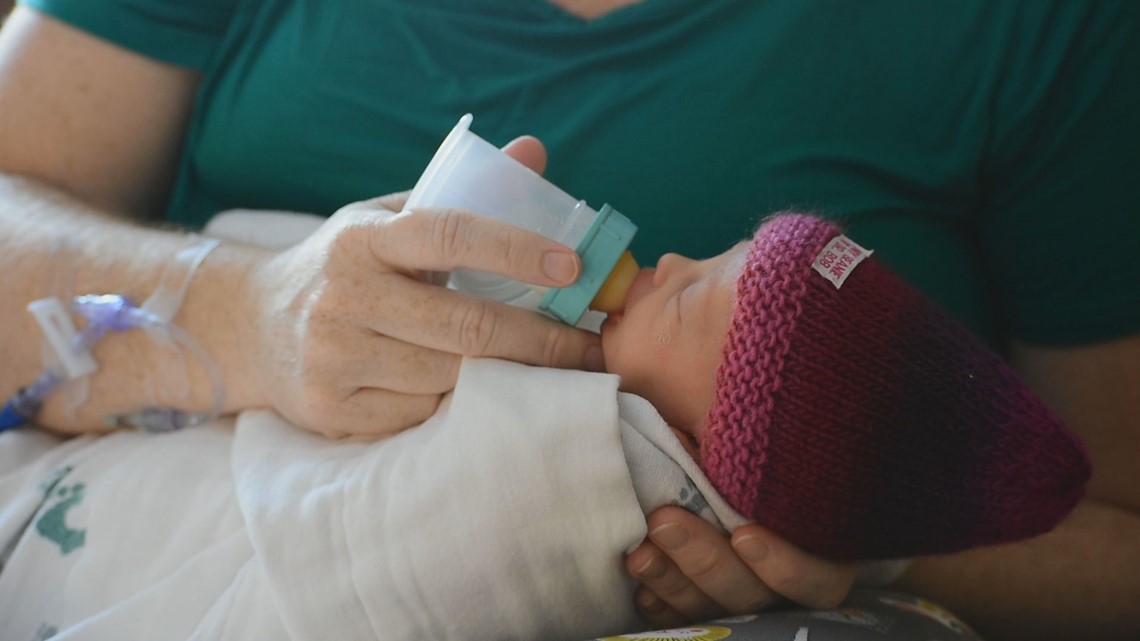
"She's little," Melanie Lord said of the four-pound baby cradled in her arms. Melanie gave birth to Lyla, her first child, on Tuesday night, March 19. Melanie developed gestational diabetes during her pregnancy.
A nurse herself, Melanie was warned that her daughter's blood sugar levels would most likely be low when she was born, and the best thing to get those sugar levels up would be breast milk.
It can sometimes take new moms three to four days until their breast milk comes in. So Lyla is drinking milk from another woman who donated it to a milk bank. Just as nurses said, Lyla's blood sugars have risen to safe levels, keeping her out of the NICU and with her mom. Melanie says being able to keep her newborn with her is the most important thing right now.

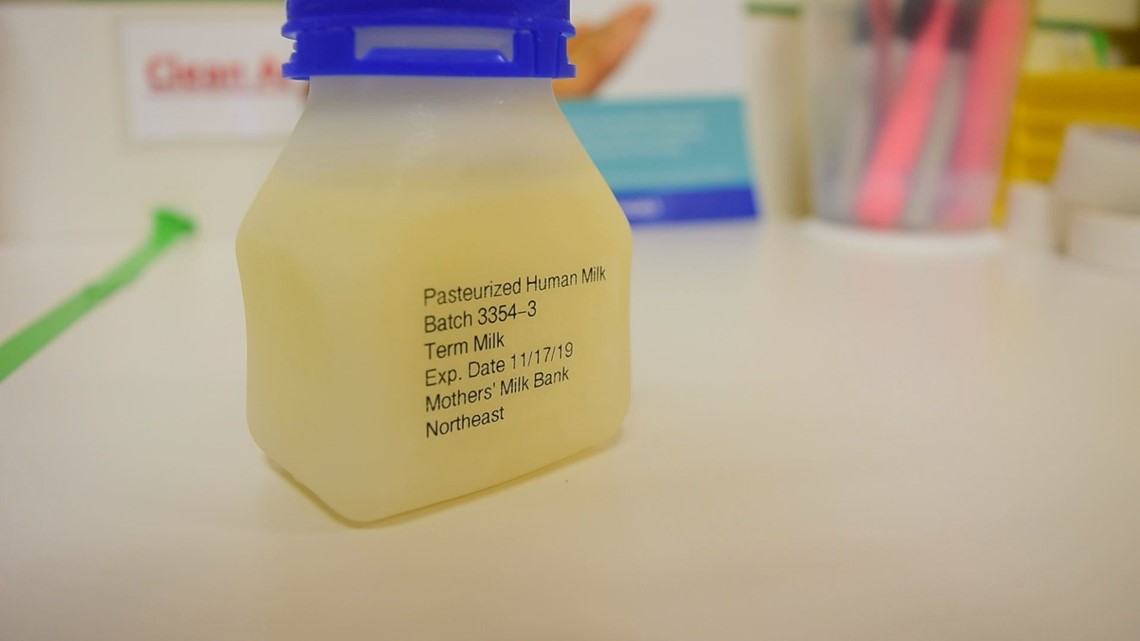
There are 27 accredited milk banks nationwide. Milk banks screen donors, test and pasteurize milk, store and then deliver milk across the nation and in Canada.
Maine Medical Center works with Mother's Milk Northeast, located in Massachusetts. Last year, the bank dispensed 340,000 ounces of donor milk to mothers in 13 states, enough milk to feed 11,000 babies for a day. And the need for donor milk continues to climb.

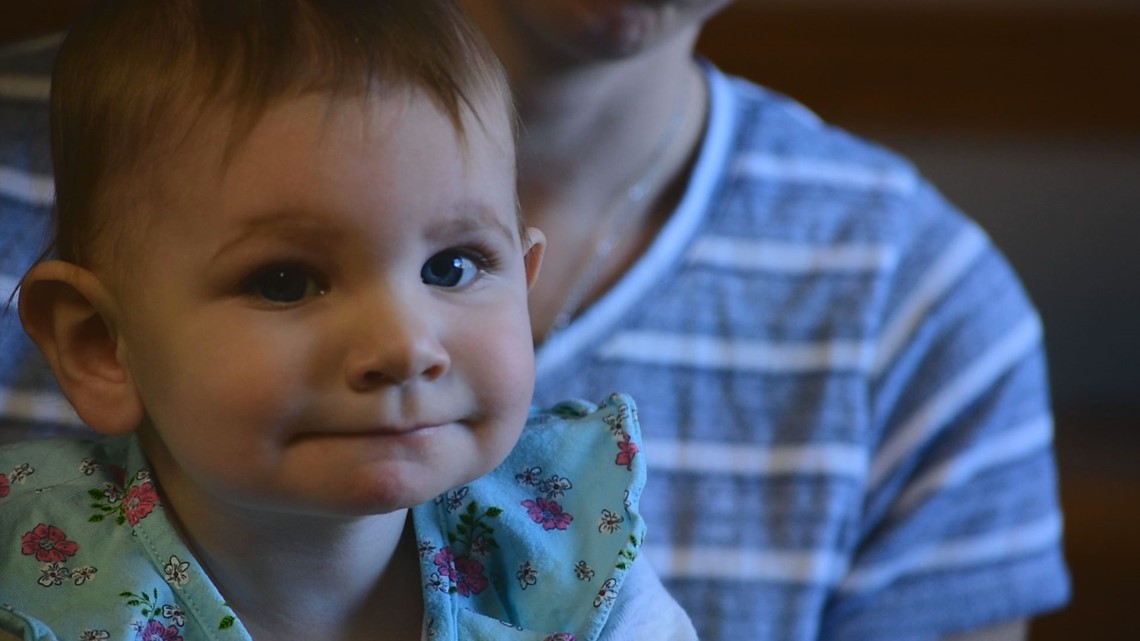
“It's for families who are planning to breastfeed, but there may be some challenges with the mom's milk supply or a medical reason,” Sharon Craig Economides explains about the donor milk program on the mother-baby floor. Economides is the Program Manager for Lactation and Childbirth Education at Maine Med.
Moms and babies can qualify for the free donor breast milk if they are obviously patients at Maine Medical Center, are on the mother-baby floor and plan to breastfeed exclusively.
“The World Health Organization, the American Academy of Pediatrics and many other health organizations recommend that human newborns only receive only human milk for the first six months of life,” explains Economides.
When Cynthia Knox gave birth to her daughter, Isla, in 2018 she thought she would breastfeed. But Isla had jaundice and a stiff neck that would require physical therapy and made it impossible for the newborn to latch. Isla was losing weight and Cynthia did not want to give her newborn formula before researching them.

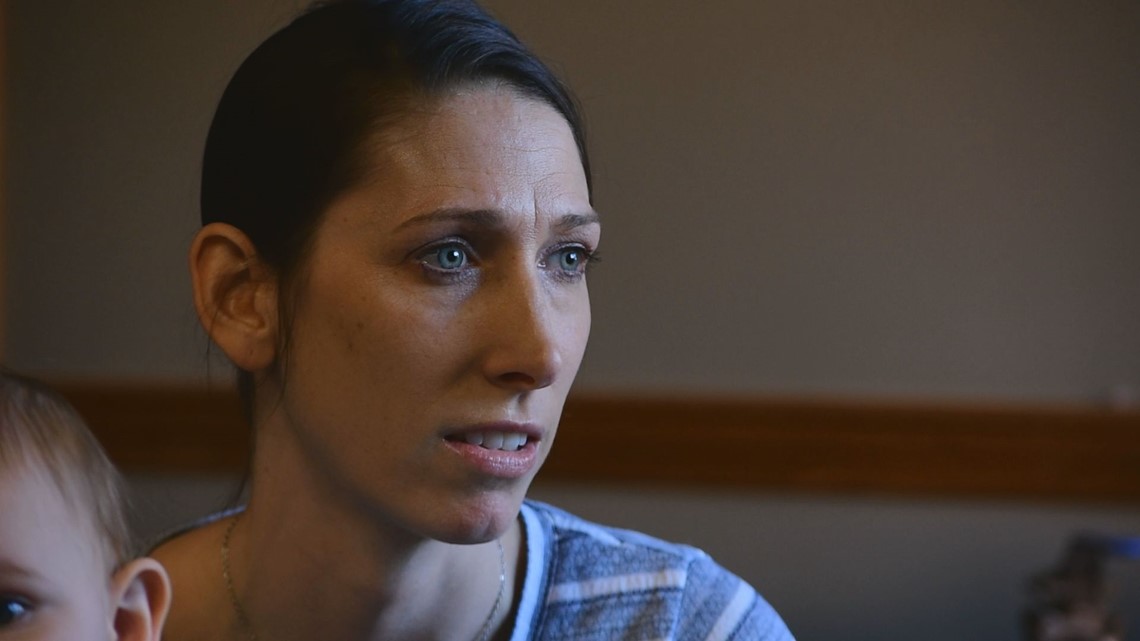
Isla was the first baby on the regular maternity ward to be given donor breast milk.
“We appreciated every sip that she took of someone else’s milk,” Cynthia recalls.
The donor breast milk was a godsend for the family. Isla would later go on to nurse from her mom but also be fed formula.
"I felt a connection that I was being supported by moms and it was my first, second day as a mom," Cynthia remembers.
Cynthia and her family are not alone.
Last year 2,900 babies were born at Maine Medical Center, and Sharon Economides says at least 20 percent of those babies were given donor breast milk. Anything from a lack of milk production or being on a certain prescription medication can thwart a new mom's desire to breastfeed her own baby.
But luckily, other mothers are stepping up to help women and babies they will never meet. Women like Audrey Kolod.
Audrey lives in Kittery with her husband and two children, Colton and Ruby. Ruby is 10 months old and still nursing. Audrey pumps once to twice a day and has for the last ten months. She recently donated 1,500 ounces of frozen milk to a breast milk bank in Indiana. That's enough milk to feed a baby for 50 days.

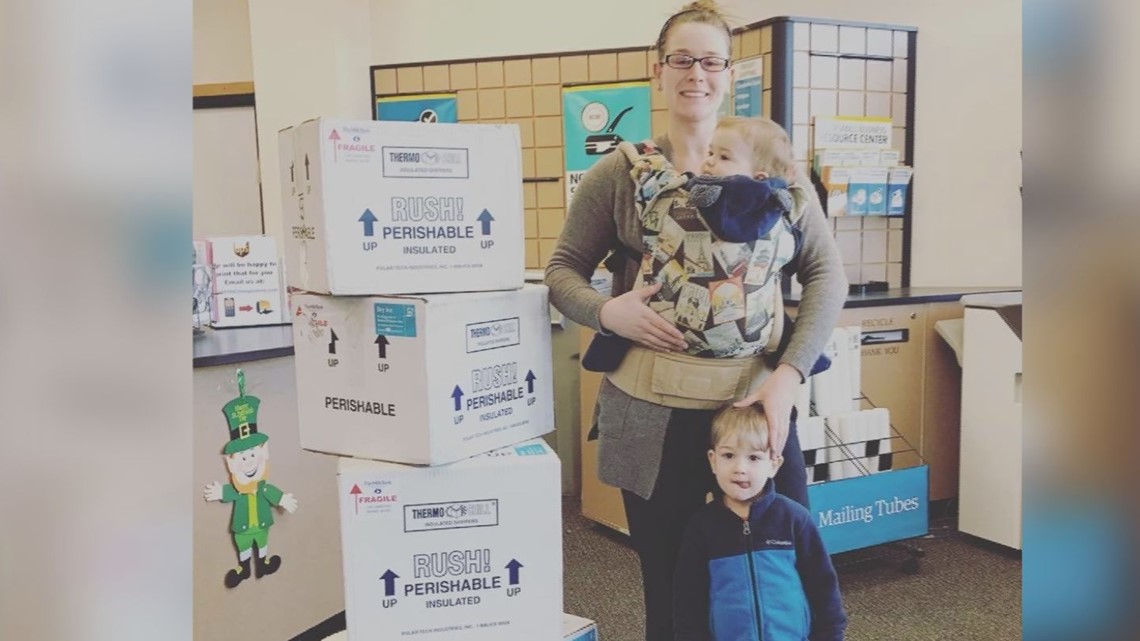
“Just to know that someone is in need and I am helping out is such a good feeling,” says Audrey as she struggles with a baby in her arms.
“They call it liquid gold for a reason...Babies that don't always have the easiest start, they need every advantage they can get, and with breast milk, there is all that stuff you just can’t get in formula,” Audrey explains.
Decades of research shows breastfed babies are less likely to develop allergies, ear infections, diabetes, and leukemia, according to Mother’s Milk Northeast.
Cynthia Knox says someone else's breast milk was the next best thing to her own.
“I felt supported by moms everywhere…and I knew I would never meet them.”
Economides admits the donor milk offered in the hospital is a short term solution but families can purchase milk from Mother's Milk Bank Northeast when they leave the hospital. A small bottle of just 100 milliliters of breast milk goes for $13.50.
Mother Milk Northeast's Executive Director Naomi Bar-Yam says the breast milk is still free but it costs the milk bank money to screen, pasteurize and store the milk.
Economides says more health insurance companies are starting to reimburse for donor breast milk.

